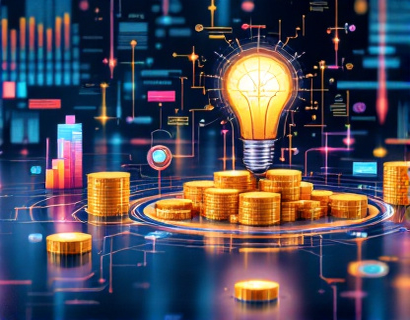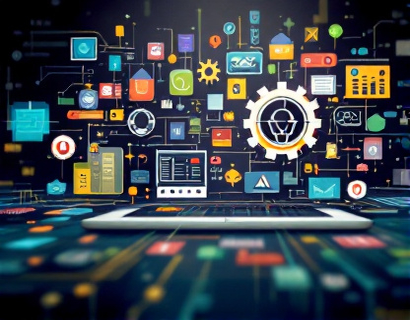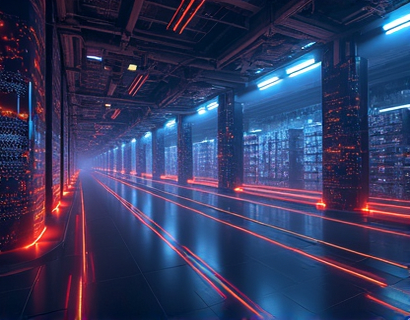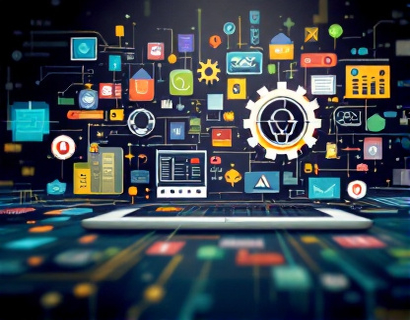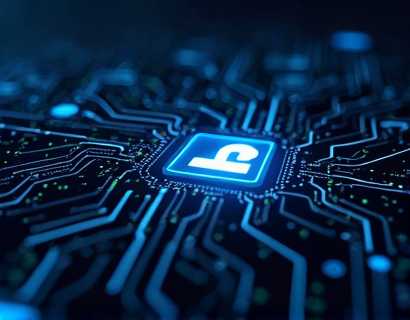Seamless AI and Blockchain Integration: A Business User's Guide to Digital Transformation Success
The integration of Artificial Intelligence (AI) and blockchain technology represents a pivotal shift in the landscape of digital transformation. For business leaders, navigating this integration can be complex but immensely rewarding. This guide serves as a comprehensive roadmap, offering actionable strategies to streamline operations, bolster security, and unlock new growth opportunities. By understanding the synergies between AI and blockchain, businesses can position themselves at the forefront of innovation, ensuring they remain competitive in an increasingly digital world.
Understanding AI and Blockchain
Artificial Intelligence, encompassing machine learning, natural language processing, and predictive analytics, enables businesses to automate processes, gain insights from vast data sets, and enhance decision-making. On the other hand, blockchain technology, known for its role in cryptocurrencies, offers a decentralized, secure, and transparent way to record transactions and manage data. When combined, AI and blockchain can create powerful solutions that leverage the strengths of both technologies.
Key Benefits of Integration
The integration of AI and blockchain brings several key benefits to businesses. Firstly, it enhances security by utilizing blockchain's immutable ledger to protect sensitive data processed by AI systems. This ensures that data integrity is maintained, reducing the risk of fraud and cyber attacks. Secondly, AI can optimize blockchain operations by automating complex tasks, such as smart contract execution and data analysis, thereby increasing efficiency and reducing operational costs. Lastly, the combination of these technologies fosters transparency and trust, as all transactions and processes are recorded and verifiable.
Streamlining Operations
One of the primary ways AI and blockchain integration can streamline operations is through the automation of back-office tasks. For instance, in supply chain management, blockchain can provide a transparent and tamper-proof record of product movement, while AI can analyze this data to predict demand, optimize inventory levels, and identify bottlenecks. This synergy not only reduces manual errors but also accelerates processes, allowing businesses to focus on strategic initiatives.
In the realm of finance, AI-driven algorithms can process and analyze transaction data on a blockchain, enabling faster and more accurate financial reporting and compliance. Smart contracts, self-executing contracts with the terms directly written into code, can automate routine financial transactions, reducing the need for intermediaries and lowering transaction costs.
Enhancing Security
Security is a paramount concern for businesses, and the integration of AI and blockchain offers robust solutions. Blockchain's decentralized nature and cryptographic security make it an ideal platform for storing sensitive data. AI can further enhance security by detecting and mitigating threats in real-time. For example, AI-powered systems can monitor blockchain networks for unusual activity, identifying potential security breaches before they occur. Additionally, AI can help in creating more sophisticated encryption methods, ensuring that data remains secure throughout its lifecycle.
Another critical aspect of security is compliance with regulatory standards. AI can assist in monitoring and ensuring that blockchain-based systems adhere to various regulations, such as GDPR or KYC requirements. By automating compliance checks, businesses can avoid costly penalties and maintain trust with customers and regulators.
Unlocking New Growth Opportunities
The integration of AI and blockchain opens up new avenues for growth and innovation. One such opportunity is in the development of decentralized applications (dApps) that leverage AI for enhanced user experiences. For instance, in the healthcare sector, AI can analyze medical data stored on a blockchain to provide personalized treatment recommendations, improving patient outcomes and operational efficiency.
In the realm of IoT, blockchain can ensure the integrity and security of data generated by connected devices, while AI can process and analyze this data to derive actionable insights. This combination can lead to smarter cities, more efficient industrial processes, and innovative consumer products. Furthermore, the tokenization of assets, enabled by blockchain, combined with AI-driven market analysis, can create new investment opportunities and streamline asset management.
Implementing AI and Blockchain Integration
For businesses looking to integrate AI and blockchain, a strategic approach is essential. Here are some actionable steps to guide the digital transformation journey:
- Conduct a thorough assessment of current processes to identify areas where AI and blockchain can add value. Focus on operations that are repetitive, data-intensive, or require high levels of security.
- Build a cross-functional team comprising experts in AI, blockchain, and the specific domain of the business. This team will be responsible for planning, implementation, and ongoing management of the integration.
- Start with pilot projects to test the integration in a controlled environment. This approach helps in identifying potential challenges and refining the implementation strategy before a full-scale rollout.
- Invest in training and development to ensure that the workforce is equipped to handle new technologies. This includes understanding the basics of AI and blockchain, as well as specific tools and platforms being used.
- Leverage existing blockchain platforms and AI frameworks to accelerate development. Solutions like Ethereum for blockchain and TensorFlow for AI can provide a solid foundation for building and deploying integrated systems.
It is also crucial to maintain a flexible and iterative approach, continuously monitoring the performance of the integrated system and making adjustments as needed. Collaboration with technology partners and staying updated on the latest advancements in AI and blockchain can further enhance the success of the integration.
Case Studies and Real-World Applications
Several businesses have successfully integrated AI and blockchain to drive transformation. For example, Maersk and IBM's collaboration on TradeLens uses blockchain to create a transparent and efficient global trade platform, with AI optimizing processes and enhancing visibility. In the financial sector, JPMorgan Chase has developed an AI-powered blockchain platform called CODI to streamline trade processing, reducing the time and cost associated with manual reconciliation.
In the supply chain industry, Walmart has implemented a blockchain-based system to track food products from farm to store, ensuring food safety and traceability. AI algorithms analyze the data to predict potential issues and optimize inventory management. These case studies demonstrate the tangible benefits of integrating AI and blockchain, from improved efficiency to enhanced security and new business models.
Challenges and Considerations
While the benefits are significant, integrating AI and blockchain also comes with challenges. One major consideration is the technical complexity and the need for specialized expertise. Businesses must invest in building or acquiring the necessary skills to successfully implement and manage these technologies. Additionally, the interoperability of different blockchain platforms and AI systems can be a hurdle, requiring careful planning and standardization efforts.
Regulatory uncertainty is another factor to consider, as the legal framework for AI and blockchain is still evolving. Businesses must stay informed about regulatory changes and ensure compliance to avoid legal risks. Lastly, the cost of implementation, including technology, talent, and training, should be carefully evaluated against the expected returns to ensure a viable investment.
Conclusion
The integration of AI and blockchain represents a transformative opportunity for businesses looking to enhance their operations, secure their data, and unlock new growth potential. By following a strategic approach, leveraging real-world applications, and addressing the associated challenges, businesses can navigate the digital transformation journey successfully. Embracing this integration not only positions companies for current success but also prepares them for the future of technology-driven innovation.













